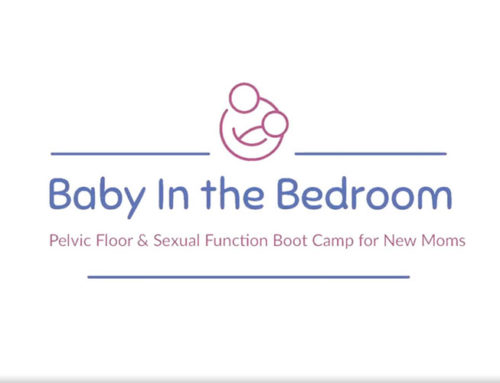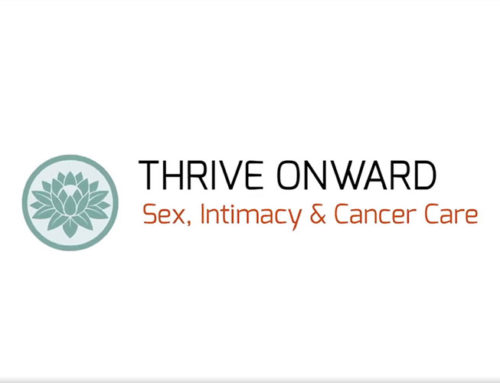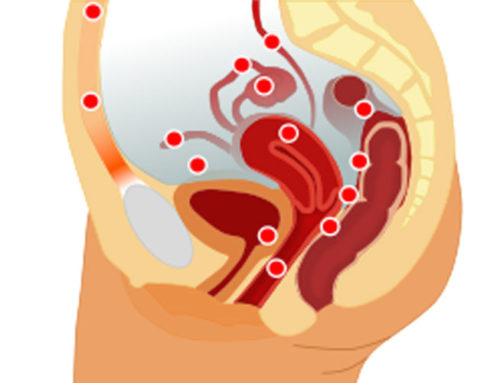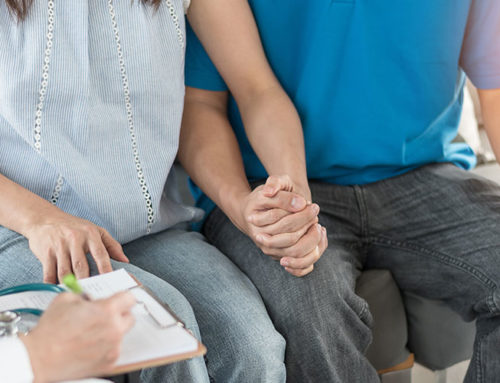A Distracted View from the Middle
by Dr. Serena McKenzie
September 2019
What makes sex great for women? This is a question not even bothered to be asked until recent history. Since we have begun to inquire about female sexual satisfaction in the past several decades, art, psychology, and now science, research and medicine have begun to weigh in. Is it romance? Body confidence and sexual skill? Hormones? Relationship quality? Or, are problems with sex a medical problem that a medication can fix?
We started with a medication for lagging sexual interest in women called flibanserin, a drug originally studied and found to fail as an antidepressant, but peripherally observed in early trials to improve sex drives in women taking it. Flibanserin initially failed twice to achieve approval for clinical use, but then a controversial heavy marketing push under an emotionally charged campaign called “Even the Score” was developed. It was argued that women were harshly underserved in approved treatments for sexual dysfunction compared to men. The internet flooded with curious to combative dialogue, questioning the miracles or evils of a drug to make sex better for women, whether the sexual dysfunction flibanserin was approved to treat even existed, and hotly debated whether this medication was a scheming pharmaceutical industry rouse that would wreak havoc on unsuspecting women under the guise of feminism.
Nonetheless, flibanserin was at long last approved by the FDA and became commercially available in 2015. The brand name Addyi (pronounced ADD-EE) was the first medication in history to be utilized in the treatment of low libido in women. Then an enduring tumultuous tale continued, Addyi was sold for 1 billion dollars 48 hours after the FDA approval ink was barely dry, and continued on to experience a cataclysmic flop both clinically and in commercial sales in its first several years on the market.
Now in 2019 we find ourselves with another FDA approval for a second medication for women who don’t want to have sex, called bremelanotide, or Vylessi. Vyleesi is a melanocortin receptor agonist which mechanically is different than Addyi, but both of these medications aim to optimize the biochemistry in the mind to improve women’s desire to be intimate. Hence the tortuous foot path of controversy over what makes women really want or avoid sex has recharged itself in the media, among medical and mental health professionals, and the general public once more.
Female Libido Pills & Sex in Medicine
While these two medication approvals have been hailed from everything as historical achievement in women’s health care to an epic failure of commercialized medical propaganda, I advocate the real value of these medications are far more complicated. Illness is usually multi-layered, but this is especially so with sexual dysfunction such as low libido. Sex and intimacy can go sideways in so many more ways than a person who doesn’t have these concerns, or a professional who isn’t in the trenches of working day in and out with people who have sexual concerns, can imagine. Sex for some women can be knifing like painful, vaginal muscles can involuntarily spasm shut, orgasms once happened then dead stop, and women of all ages can lose complete interest in having sex in ways that makes them or their relationship miserable. It is challenging to explain how deeply devastated women can be when they struggle with sexual concerns. Accept if you can that distress can be debilitating over sexual problems, women deserve help, and sexual dysfunction should matter to the partners of women as well as their healthcare providers.
Sexuality is Mind-Body but Not-Body? Or, You Can’t Talk Yourself out of a Brain Tumor
I will argue almost all sexual dysfunction is multifactorial. Our mind and body require complicated coordination that is necessary for successful sexual health. The hydraulics of sex cannot function if the mechanics are broken. Mechanical breakdown can be vascular disease which impairs blood flow necessary for arousal, or absence of a necessary hormone to allow for vaginal lubrication, or a sexual side effect of a medication that flattens out any capacity for an orgasm.
But in contrast a healthy machine cannot function sexually if someone has angst in the mind; anger at their partner, feelings of being morbidly unattractive, or simple exhaustion that can lead to sexual apathy. It is laborious to determine where a sexual symptom may be originating from. Is it the mind that doesn’t want to have sex? Or is there something physically wrong? It is critical to understand it often is both, and that they affect each other, and furthermore, that biochemistry and sexual interest and function is very real.
We have decades of medical literature that explore the cardiological, endocrine, renal, neurovascular and many other areas of disease that affect sexual function. The more ill a woman is, the far more likely she is to have an associated sexual concern. Sexual symptoms can lead to the diagnosis for example of a pituitary brain tumor; women with this condition yet to be diagnosed will not respond to talk therapy, because the cause of their sexual problems is medical. A brain tumor is easy to identify on an MRI, a biochemical imbalance Addyi or Vyleesi seek to address is not – but that does not make it any less real. Sex problems are almost always multifactorial, and treatment must therefore also be.
No Woman Needs A Sex Pill? And Avoiding Bad Sex Is Not a Medical Disorder
Arguments against Addyi and Vylessi are rampant, and include the drugs are too dangerous, lack efficacy, and represent the medicalization for profit of normal variability in sexual interest. Essentially, there isn’t anything wrong with a woman who is disinterested in sex, and she doesn’t need any useless, harmful drugs for it.
The key word however in the women-don’t-need-treatment argument is distress. A woman deeply upset about her own lack of sexual motivation is what qualifies her as potentially having a medically relevant low libido. Medical treatments are only for women who want to want more sex. Critics of Addyi and Vyleesi are quick to cite how important body image, life stress, compatibility in a relationship, family of origin sexual messages, and personal sexual identity is to a woman’s sexual interest. There is strong research consensus that psycho-social and interpersonal factors are the large contributions to having reduced sexual desire, including anxiety about sexual attractiveness, body image, and aging; confusion or shame about sexual orientation or fantasies; fatigue, stress, depression; experiences of sexual trauma and violence; relationship problems and length of relationship. And I completely agree that these factors are often highly prevalent. It is not a medical disorder to avoid bad sex . But you cannot advocate that women’s sexuality is all inclusive of their mind, body, and spirit – and assert simultaneously that a biochemical contribution to satisfying sexual experiences does not exist.
Sexy Stuff Side Effects & Efficacy Doubts
Yes, Addyi and Vylessi have side effects, and the sky is blue. Both medications can cause lightheadedness and dizziness. Addyi can interact with high intake of alcohol which requires it be taken two hours away from drinking, and a very small percentage of frequent users of Vyleesi may develop skin discoloration with long term use. All medications inherently come with a long list of pros and cons profiles, and a woman considering one of these medications needs to carefully discuss whether the potential benefits outweigh the risks for her health.
Vyleesi is an auto-injector into the thigh taken prior to anticipated sexual activity rather than Addyi which is a pill taken every day, potentially reducing risks and side effects and avoiding the need to take a daily medication. Regardless, any medication has indications for its use, warnings, side effects, and potential interactions that can only be discussed in the context of an individual woman’s health status. The difference in managing an Addyi and Vylessi prescription pros and cons for women with libido complaints varies from every other clinical day in medicine in this many ways: zero.
Questions regarding how well medications for low libido work in women are reasonable areas of concern. Initial science studying Addyi showed women experienced an average of 0.4 to 1.0 additional sexual satisfying events per month; later comparison of several publications showed women who took Addyi had sexual improvements over placebo, but these changes were modest, and the real life relevance appears small. Vyleesi research shows similar efficacy, with a modest rate of women reporting meaningful increase in sexual desire. Clearly these medications are not going to help every woman, however, women who do respond consistently report value in the medication therapy even if the response is subtle. Fundamentally both these medications should be limited to women who experience personal upset due to a diminished interest in sex with no other apparent cause for the sexual problem, and after other non-medication treatments have proven ineffective.
Changing the World, One Orgasm at a Time
We simply cannot overlook how astronomical of an achievement it is to even have two mediocre medications approved for female sexual dysfunction. Women’s sexuality has been ignored by medicine for most of history. At least now we have something to fight over.
The controversy and debate about pills for women’s sex drive is in fact awesome, and frankly, the entire point. We must talk openly about sexuality and sexual concerns to improve them, personally for one woman at a time, but also uniformly to improve female sexual function as a vastly larger societal allowance. Even if we disagree, we must keep talking. Because every viewpoint about what makes sex great for women is important, necessary, and potentially life changing to a woman struggling with sexual dysfunction – this is exactly why multidisciplinary collaboration is not simply ideal, but imperative.
Great Sex in Ordinary Life
Sexuality and intimacy are some of the great extraordinary experiences of being human. Sexual aliveness is far more than the restoration of sexual dysfunction, it’s a thriving, multi-dimensional, ever evolving weave of psychology, physiology, relationships, life circumstances, and yes, a milieu of biochemistry and neurotransmitter pools.
Is a pill ever going to replace the vastly complicated arenas that fuse into our sexual experience? Of course not, and it’s absurd not to mention lazy minded for anyone to suggest that is even being proposed. But it is necessary and inherently responsible to allow for all possible puzzle pieces to be put together which can be utilized through the ever ongoing navigation of sensuality, intimacy, and erotic fulfillment.
Being an advocate for sex pills for women is far less about endorsing a medication, and far more about being a sex positive social activist who believes women need and deserve choices that support their capacity to flourish sexually. Women should have powerful conversations about sex, with themselves, their partner, and especially with their health care provider, which includes probing into the blurred lines of feminist or corporate bias that influence their healthcare when they have sex problems. But ultimately women deserve to be educated on treatment options they can choose or decline as they seek their own true sexual and intimate state of being.
In an ideal world, women should have the opportunity to explore and embrace their bodies, feel empowered to and have the emotional intelligence necessary for meaningful, rich and symbiotic intimate relationships. Women should have the opportunity to explore their erotic self with knowledge, freedom, playfulness, and power. These are the traits sexual dysfunction women discover in their journey towards becoming sexually vital, and a medication is merely one small, but potentially necessary element, for some women on this journey. More than anything, I want a world where genuinely no woman needs Addyi or Vyleesi. But for now, I’ll take the fact that we are finally able as a society to at least openly battle about it as the next best thing.
























